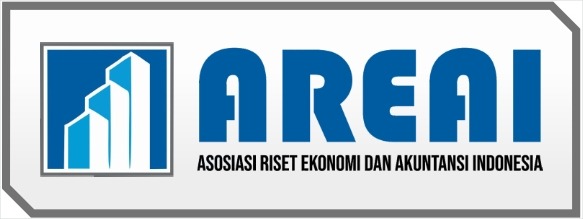Analysis of the Effectiveness of the Implementation of the Tax Volunteer Program in Improving Compliance With the Annual Tax Return Reporting of Individuals at KPP Pratama Menteng Satu Jakarta in 2020 – 2021
DOI:
https://doi.org/10.61194/ijat.v1i1.8Keywords:
Effectiveness, Tax Volunteer Program, Taxpayer ComplianceAbstract
This study aims to analyze the effectiveness of the role of the tax volunteer program in improving compliance with the annual tax return reporting of individuals at the KPP Pratama Menteng one year 2020-2021 and determine the driving and inhibiting entities in the implementation of the tax volunteer program. The research phenomenon is the low realization of the tax revenue target, the low level of taxpayer compliance, whereas the Directorate General of taxes seeks to provide good services such as tax volunteer program. This thesis uses the theory of Duncan with indicators of achievement of objectives, integration and adaptation of this study using a qualitative research approach with descriptive research type . The Data used are primary data obtained from interviews and secondary data informants. Data collection techniques in the form of interviews , observation, documentation and source trigulation. The results showed that the effectiveness of the implementation of the tax volunteer program in improving the reporting of annual tax returns has been running according to Regulation article 1 point 9 PER-12/PJ/2021 but not yet effective, the main problem that is website unstable in Kpp Pratama Menteng one. and the part that became tax volunteers at Kpp Pratama Menteng one , only from the STIAMI Institut can be seen from the survey results because of good service in assisting the reporting of annual tax returns so that the tax volunteer program can have the opportunity to improve compliance and increase state tax revenue However, there are still inhibiting entities.
References
Alm, J., Buschman, R. D., & Sjoquist, D. L. (2014). Foreclosures and local government revenues from the property tax: The case of Georgia school districts. Regional Science and Urban Economics, 46(1), 1–11. https://doi.org/10.1016/j.regsciurbeco.2014.01.007
Babin, I. I. (2022). Features of Self-Taxation as a Form of Local Budget Revenues. Danube, 13(4), 292–305. https://doi.org/10.2478/danb-2022-0018
Caminada, K., & Goudswaard, K. (2008). Revenue effects of tax facilities for pension savings. Atlantic Economic Journal, 36(2), 233–246. https://doi.org/10.1007/s11293-008-9114-1
Drucker, J., Funderburg, R., Merriman, D., & Weber, R. (2020). Do local governments use business tax incentives to compensate for high business property taxes? Regional Science and Urban Economics, 81. https://doi.org/10.1016/j.regsciurbeco.2019.103498
González Canché, M. S. (2022). Post-purchase Federal Financial Aid: How (in)Effective is the IRS’s Student Loan Interest Deduction (SLID) in Reaching Lower-Income Taxpayers and Students? Research in Higher Education, 63(6), 933–986. https://doi.org/10.1007/s11162-021-09672-6
Kashefi Pour, E., & Lasfer, M. (2019). Taxes, governance, and debt maturity structure: International evidence. Journal of International Financial Markets, Institutions and Money, 58, 136–161. https://doi.org/10.1016/j.intfin.2018.09.011
Lewis, B. D. (2018). Local Government Form in Indonesia: Tax, Expenditure, and Efficiency Effects. Studies in Comparative International Development, 53(1), 25–46. https://doi.org/10.1007/s12116-017-9236-z
Liu, H., Xia, Q., & Xu, J. (2011). Notice of Retraction: Taxpayer compliance in China: A prospect theory analysis. 2011 2nd International Conference on Artificial Intelligence, Management Science and Electronic Commerce, AIMSEC 2011 - Proceedings, 7292–7297. https://doi.org/10.1109/AIMSEC.2011.6009750
Ramírez, J. M., Díaz, Y., & Bedoya, J. G. (2017). Property Tax Revenues and Multidimensional Poverty Reduction in Colombia: A Spatial Approach. World Development, 94, 406–421. https://doi.org/10.1016/j.worlddev.2017.02.005
Mardiasmo. 2016. Pajak dan Perpajakan Edisi Terbaru 2016. Yogyakarta: Andi.
Neuman, W. Lawrence. 2011. Social Research Methods: Qualitative and Quantitative Approach. Boston: Allyn and Bacon.
Pandiangan, Liberti. 2008. Modernisasi & Reformasi Pelayanan Perpajakan: Berdasarkan UU Terbaru. Jakarta: PT Elex Media Komputindo.
Pohan, Chairil Anwar. 2014. Pembahasan Komprehensif Pengantar Perpajakan. Jakarta: PT Gramedia Pustaka Utama.
Jurnal 23 E-jurnal- pps.Unsri Teori Efektivitas Duncan 1985 Mulya, Lilliyana, Lastria Nurtanzila (2018) Vol. 13 No. 1 Sekolah Vokasi Universitas Gadjah Mada Sekip Unit I Dalam Pertukaran Otomatis Informasi
Jurnal Pajak Vokasi (JUPASI) Vo. 3. No. 1, September 2021 pp 31-38 Supriyadi, 2019 Sekolah Tinggi Akuntansi Negara Dalam Automatic Exchange of Information sebagai Sarana Meningkatkan Empat Pilar 53
Kepatuhan Pajak (Jurnal Reformasi Administrasu Vol. 6 No. 2 September 2019, pp 114-123) https://repository.bsi.ac.id/index.php/unduh/item/2473/File_13-Bab-II-Landasan-Teori.pdf
https://www.mucglobal.com/id/news/2052/aeoi-momentumreformasi- perpajakan
https://nasional.kontan.co.id/news/pertukaran-data-perpajakanbelum- dimanfaatkan-maksimal
E- Riset Direktorat jendral pajak Data Target dan Realisasi Tahun 2019 – 2022 Kpp Pratama Menteng Satu
E- Riset Direktorat Jendral Pajak Data jumlah wajib pajak Kpp Pratama Menteng Satu
Undang-Undang Republik Indonesia Nomor 28 Tahun 2007 tentang Ketentuan Umum Dan Tata Cara Perpajakan (KUP) 55 Mengacu Pasal 1 angka 9 Peraturan Direktur Jenderal Pajak No. PER-12/PJ/2021 relawan pajak.
Temha II (Pasal 4 ayat (1), Pasal 6 ayat (3) PER- 12/PJ/2021).Berdasarkan Nota Dinas No.ND – 1317/ J.09/2019, program relawan pajak dilaksanakan untuk meningkatkan kepatuhan wajib pajak serta mendorong implementasi pelibatan pihak ketiga dalam kegiatan penyuluhan perpajakan
Downloads
Published
How to Cite
Issue
Section
License
Copyright (c) 2023 Amelia Nabila

This work is licensed under a Creative Commons Attribution 4.0 International License.






